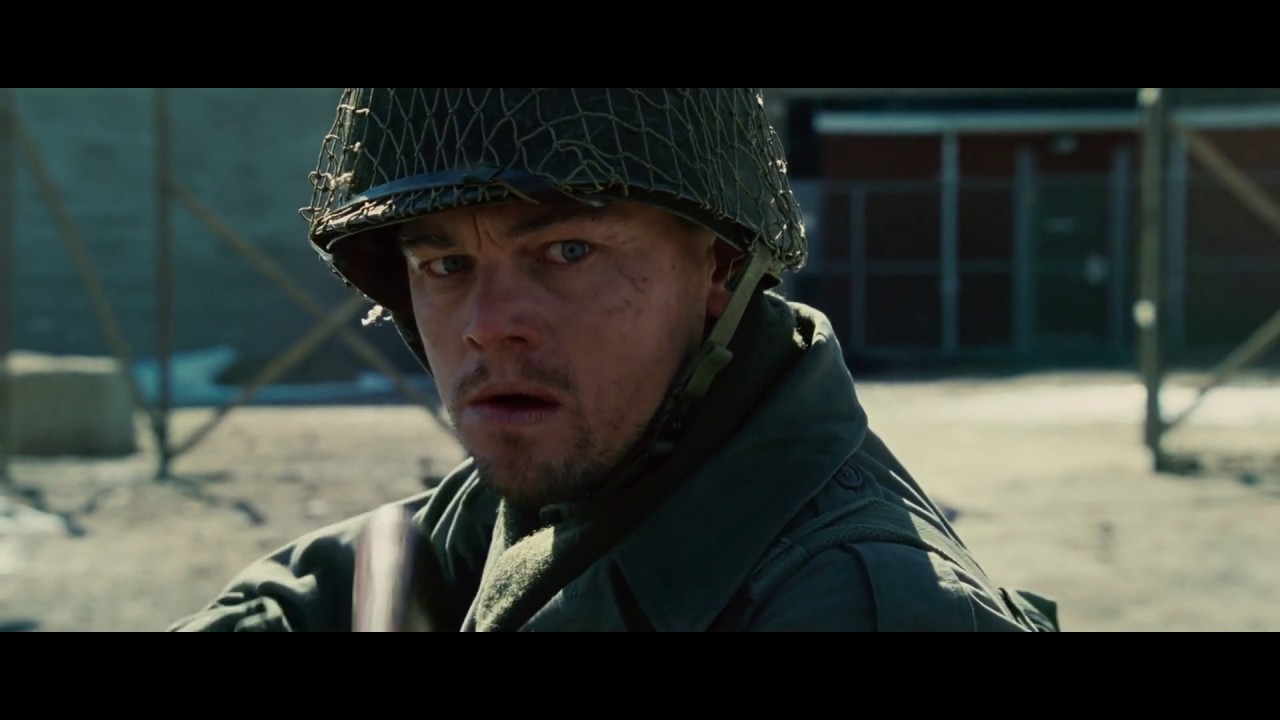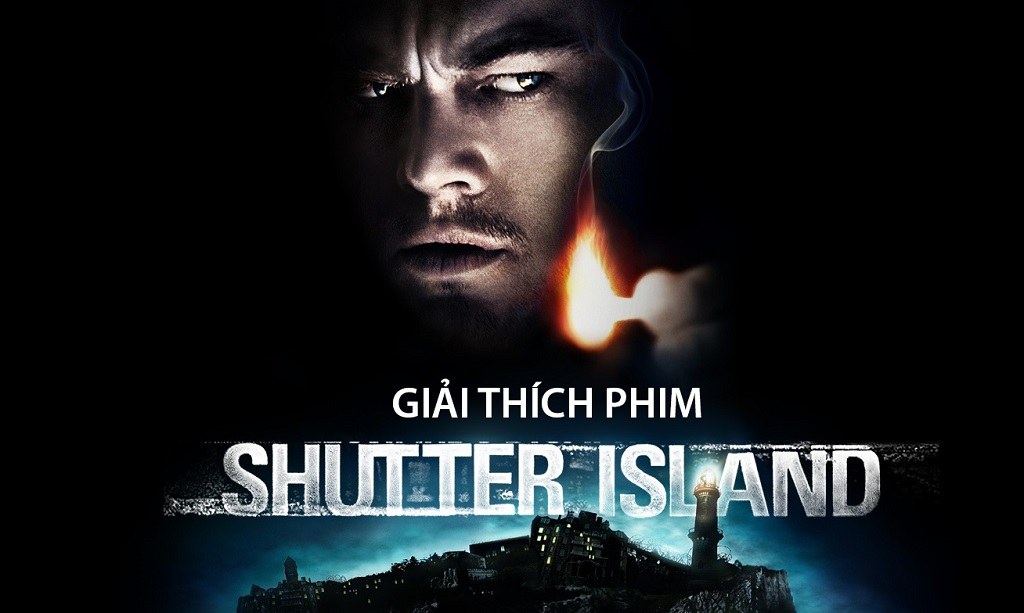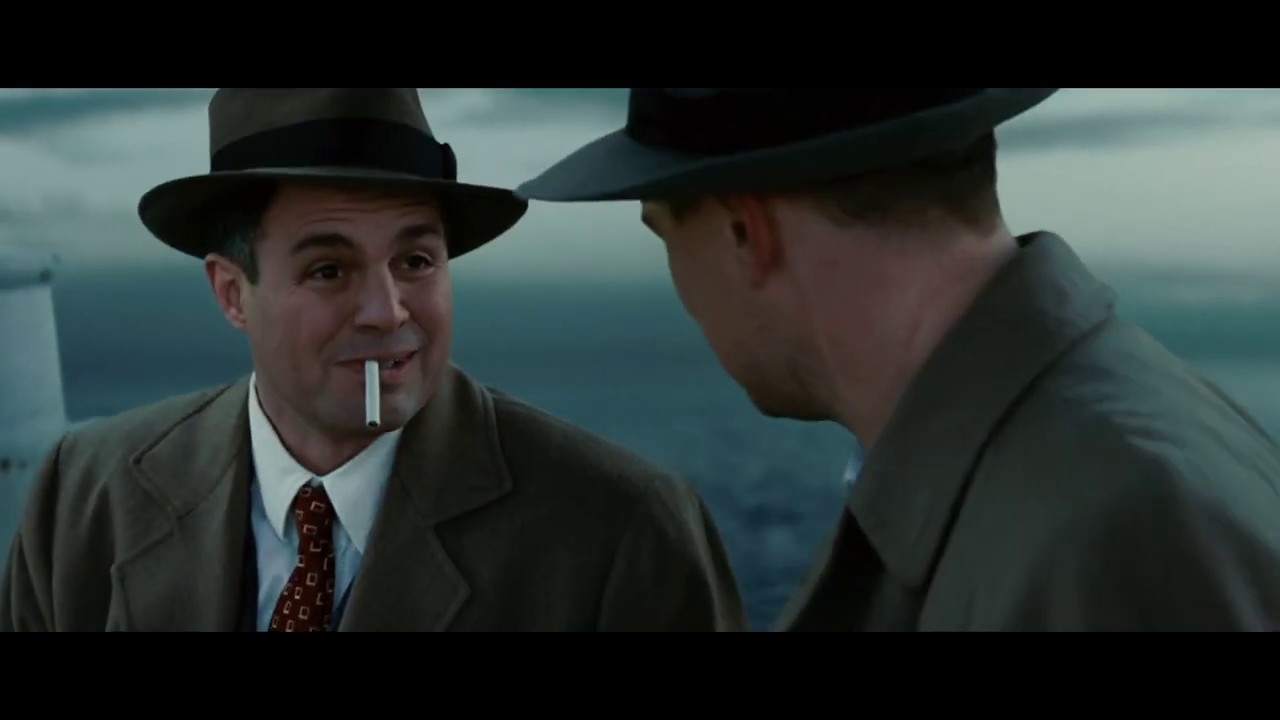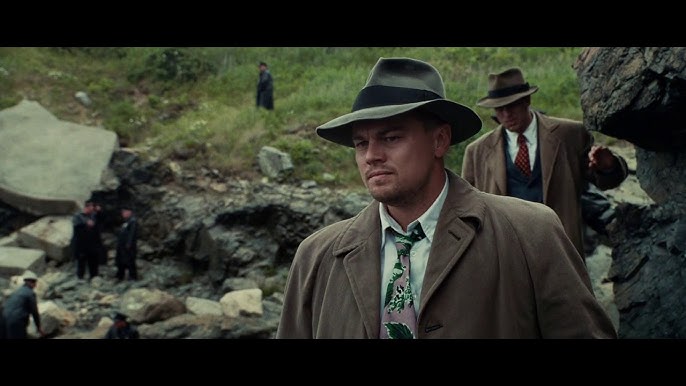🎬 Shutter Island (2010): A Psychological Maze of Guilt, Trauma, and Deception

Shutter Island (2010), directed by Martin Scorsese and starring Leonardo DiCaprio, is a masterful psychological thriller that pulls the viewer deep into a world of paranoia, mystery, and madness. Based on the novel by Dennis Lehane, the film is a haunting exploration of the human mind and the devastating effects of trauma. With stunning cinematography, an intense narrative, and outstanding performances, Shutter Island delivers a gripping and unsettling experience that stays with the audience long after the credits roll. But does it unravel its psychological complexities in a way that leaves viewers satisfied?
Plot Overview:
Set in 1954, the film follows U.S. Marshal Teddy Daniels (Leonardo DiCaprio) and his partner, Chuck Aule (Mark Ruffalo), as they arrive at Ashecliffe Hospital, a mental institution for the criminally insane located on the remote Shutter Island. They are investigating the disappearance of a dangerous patient, Rachel Solando (Emily Mortimer), who seems to have vanished from her locked cell without a trace.
As Teddy digs deeper into the investigation, he becomes increasingly suspicious of the hospital staff, particularly its lead psychiatrist, Dr. Cawley (Ben Kingsley). Teddy’s investigation soon takes a darker turn as he uncovers disturbing secrets about the hospital’s experimental treatments and a mysterious patient named Andrew Laeddis, who seems connected to Teddy’s past.
Teddy is also haunted by flashbacks of his wife, Dolores (Michelle Williams), who died in a tragic fire, and his traumatic experiences liberating the Dachau concentration camp during World War II. As a powerful storm traps them on the island, Teddy’s grip on reality begins to unravel, and he is forced to confront his own buried memories and the possibility that the truth may be far more horrifying than he ever imagined.
The narrative unfolds like a psychological puzzle, where every clue seems to lead to another question, and nothing is what it seems.

Character Development and Themes:
At the heart of Shutter Island is Teddy Daniels, a man burdened by grief, guilt, and trauma. Leonardo DiCaprio delivers a tour-de-force performance, capturing Teddy’s increasing desperation, paranoia, and vulnerability as he delves deeper into the island’s mysteries. DiCaprio’s portrayal of a man on the edge of sanity is both heartbreaking and compelling, as the audience slowly realizes that Teddy may not be the reliable narrator he appears to be.
Teddy’s character arc is a descent into the darkest corners of his psyche, as he is forced to confront the devastating truth about his past. His investigation into Rachel Solando’s disappearance becomes a metaphor for his own search for meaning and redemption. The closer he gets to the truth, the more fragmented his mind becomes, until the lines between reality and illusion blur completely.
Mark Ruffalo’s Chuck Aule serves as Teddy’s calm and collected partner, though his role in the story becomes increasingly ambiguous as the film progresses. Ben Kingsley’s Dr. Cawley is a masterfully enigmatic figure—at times appearing helpful and concerned, and at others, coldly manipulative. His interactions with Teddy are filled with psychological tension, as he carefully pulls at the threads of Teddy’s unraveling mind.

Michelle Williams’ haunting portrayal of Dolores, Teddy’s deceased wife, adds a deeply emotional layer to the story. Dolores appears to Teddy in dreamlike flashbacks, representing his guilt and unresolved trauma. Her presence looms large over Teddy’s every action, reminding him of the tragedy he cannot escape.
The film explores several heavy themes, including guilt, trauma, and mental illness. One of the central ideas is the nature of denial and the lengths the mind will go to protect itself from painful truths. Teddy’s journey is one of self-deception, and the audience is gradually pulled into the depths of his distorted reality. The film asks difficult questions about the human mind’s capacity to cope with trauma, and whether it is better to live in denial than to confront unbearable guilt.
Another key theme is the idea of control—both external and internal. The oppressive setting of Ashecliffe Hospital, with its locked wards, ominous staff, and isolated location, reflects Teddy’s own mental prison. The question of who is truly in control—Teddy, the hospital, or his mind—drives much of the film’s tension.
Cinematography and Visual Style:
Shutter Island is visually stunning, with Scorsese and cinematographer Robert Richardson creating an atmosphere of mounting dread and psychological tension. The island itself is a character in the film—its jagged cliffs, dark forests, and looming storm clouds reflecting the turmoil within Teddy’s mind. The hospital, with its claustrophobic halls and eerie lighting, adds to the sense of unease, making the audience feel trapped alongside the characters.
The film’s dream sequences and flashbacks are especially striking. Scorsese employs surreal, almost hallucinatory imagery, using saturated colors, slow motion, and disorienting camera angles to give the viewer a sense of being lost in Teddy’s fragmented memories. These sequences blur the line between reality and illusion, forcing the audience to question what is real and what is merely a projection of Teddy’s subconscious.

The use of sound is also masterful. The haunting, discordant score, combined with moments of silence and ambient noise, creates a sense of creeping dread. Every sound—whether it’s the echo of footsteps in a hallway or the roar of the storm outside—feels deliberately placed to heighten tension and keep the viewer on edge.
Criticism:
While Shutter Island is widely praised for its atmosphere, performances, and storytelling, some critics have noted that its twist ending may be divisive. The revelation that Teddy is, in fact, Andrew Laeddis—a patient at Ashecliffe who has constructed an elaborate fantasy to escape the truth of his wife’s murder—can be seen as either a powerful, emotional gut punch or a somewhat predictable plot device, depending on the viewer’s perspective.
For some, the final act, where the truth is laid bare, may feel overly expositional, as the film explains the details of Teddy’s delusion in a way that leaves little to the imagination. Others, however, appreciate the way the twist reframes the entire narrative, making a second viewing an entirely different experience.
Additionally, the film’s slow pacing and heavy reliance on psychological tension over action may not appeal to all audiences, particularly those expecting a more traditional thriller.

Final Thoughts:
Shutter Island is a masterfully crafted psychological thriller that delves deep into the human mind and explores the devastating impact of trauma and guilt. With Scorsese’s expert direction, DiCaprio’s powerful performance, and a haunting atmosphere, the film is an intense, cerebral experience that lingers long after it ends.
While its twist ending may not resonate with everyone, Shutter Island remains a compelling exploration of the fragility of the human psyche and the lengths to which we go to protect ourselves from painful truths. For fans of psychological thrillers and films that challenge perceptions of reality, Shutter Island is a must-watch.
Movie Information:
- Title: Shutter Island
- Director: Martin Scorsese
- Starring: Leonardo DiCaprio, Mark Ruffalo, Ben Kingsley, Michelle Williams
- Genre: Mystery, Thriller, Psychological Drama
- Release Date: February 19, 2010
- Running Time: 138 minutes
- Rating: R
- Plot Summary: U.S. Marshal Teddy Daniels is sent to Shutter Island to investigate the disappearance of a patient from a mental institution. As he delves deeper into the case, Teddy uncovers disturbing truths about the hospital, his own past, and the fragile boundary between sanity and madness.
SUGGESTED VIDEO FOR YOU:
[Movie Review] Terrifier 3 (2024): The Return of Art the Clown in a Blood-Soaked Horror Sequel
[Movie Review] The Killer’s Game (2024): A Deadly Contract, A Race Against Time











